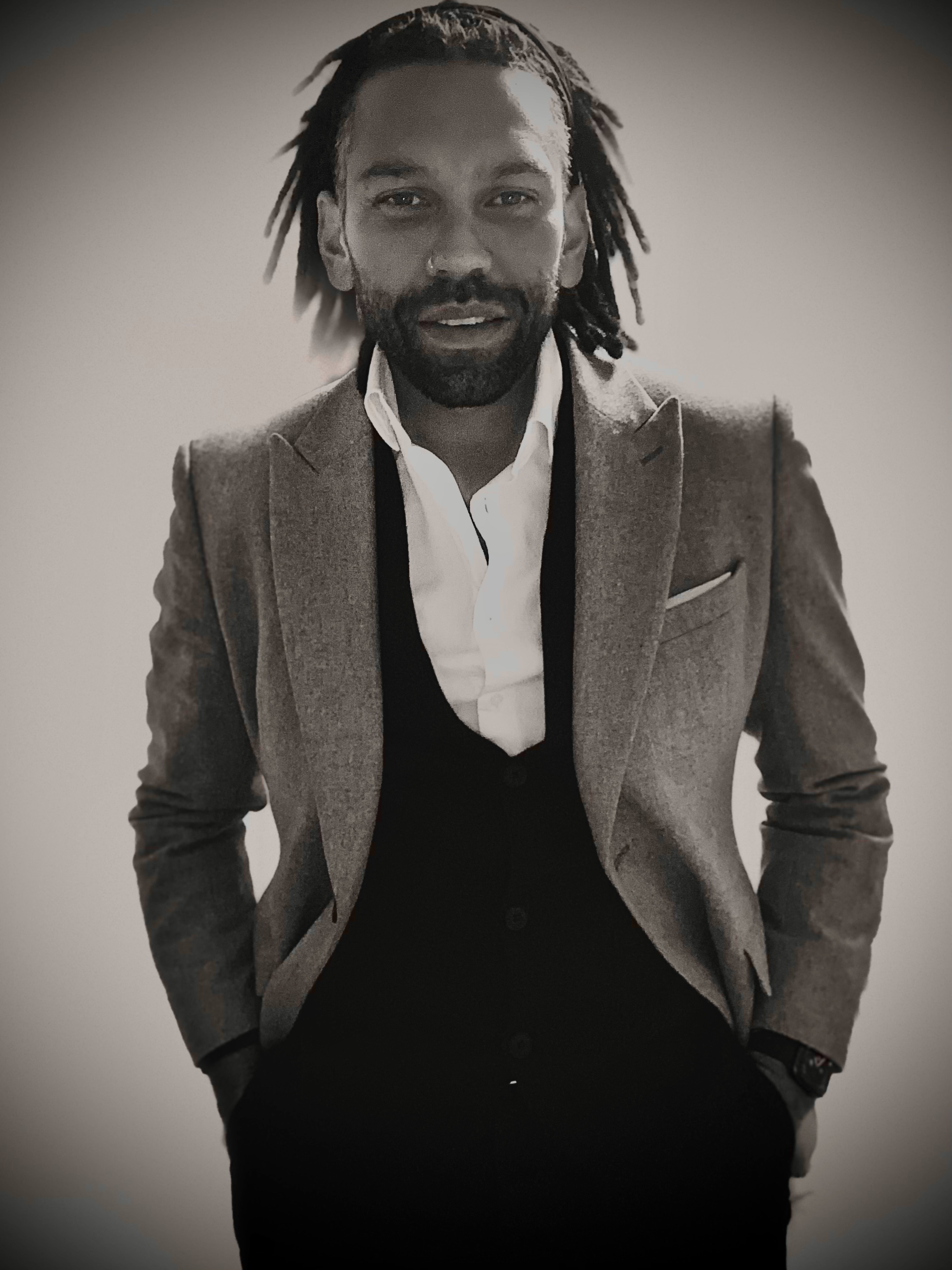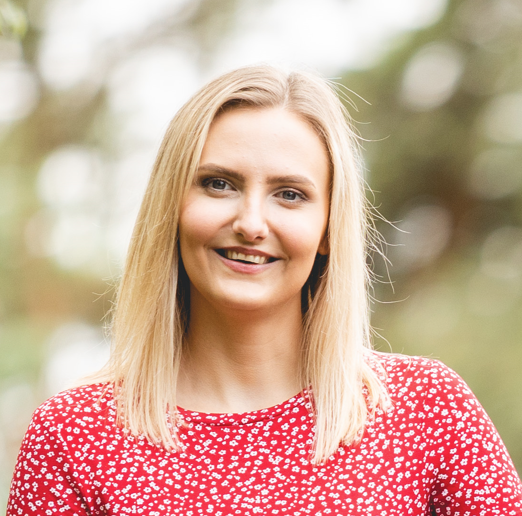LGBT+ History Month – ‘Those who cannot learn from history are doomed to repeat it.’

Adam Vasco, Director of Diversity & Inclusion in Professional Practice and Aisha James Co-Chair of the LGBTQ+ Staff network blog about LGBT+ History month.
This week marks the start of LGBT+ History Month. I was delighted to be invited to attend Wolverhampton City Council’s (Gilbert) Pride Flag raising as LGBT+ History Month begins. The Gilbert flag is being used in this instance, given its historical importance, the Progress flag will be used for Pride - Aisha will share her thoughts on this as you read on.
I attended as an ally to the LGBTQ+ community. But what does that mean? It is about tangible action. In the first instance, it is a recognition of the need to listen, learn and unlearn. It is about the recognition of privilege. You only need to engage with the press and social media to see the fires of the culture wars being stoked on a regular basis. Allyship is about using that privilege to challenge and disrupt the status quo. History tells us it is not enough to not be homophobic, not be transphobic etc, and we must challenge ourselves.
For us as a University, LGBT+ History Month is about reflection, but also action. Progress has been made. History is being made. No more so than the 1.5 million people LGBT+ people recognised on the census for the first time. The reality is that there will be many more from the community who, for a variety of reasons have not declared their identity. Stonewall said the data should be “a wake-up call for leaders in all walks of life.”
‘The rainbow generations are our future. Soon these generations will be the biggest section of our workforce… For gen Z and millennials, there are simply more LGBTQ+ people in these generations and we will be a bigger part of every constituency, workplace, sports club or faith community than under previous generations.’
LGBT+ History month is not only a time of reflection, but also a call to action, to mobilise, to empower, to amplify, and to learn. The title of this blog post uses the words of philosopher George Santayana, ‘Those who cannot learn from history are doomed to repeat it.’ There is a poignancy to this when we think about the challenges faced today by all people who form the LGBTQ+ community, and in particular our Trans and Non-Binary people. A group, who through no choice of their own, find themselves spoken about and reported on with often anti-trans rhetoric. From government interventions to infamous authors being the poster child for a regressive movement, it is a toxic and challenging landscape. Does this sound historically familiar?
My view is that it is our job as a university and regional community, whether as allies or with lived experiences, to ensure we do learn from history. A history that is not pretty. It is only 20 years ago, in this millennia, that the horrors of Section 28 were formerly repealed. It is 10 years since same-sex marriage became legal. How will history judge us? We have an opportunity to make a history we can be proud of.
It is with a great sense of pride, that I introduce my friend, colleague, and newly appointed Co-Chair of the LGBTQ+ Staff Network – Aisha James. Aisha is a breath of fresh air. The work she is doing in the School of Sport, the wider faculty and in the staff network is outstanding. The epitome of activism and allyship, striving to make our present and future better than our past. Aisha has begun our month of celebrations by recording a podcast with Sir Matthew Bourne. It is essential to listen. Aisha is a fellow disruptor. Indeed, I often frame the work we do by saying we need to become increasingly comfortable with being uncomfortable. So, are you sitting uncomfortably?

LGBTQIA+ History Month means different things to different people. Each queer person experiences life through a vastly different lens than the next, whether this be due to their experiences surrounding their sexuality, or their other intersectional characteristics and how these interact with one another.
Some may say “Why do they need a history month? There isn’t a straight history month.” But to that I say, all history widely taught is heterosexual history, much like most history taught in the UK is centred around whiteness. Marginalised groups are named for a reason; they aren’t, or haven’t been, widely represented in society or in media.
LGBTQIA+ History Month is also very important for queer people themselves to engage with. There are a lot of important historical moments that have brought us to where we are today, and without these people and events, who knows where we would be? As this history isn’t taught in schools, unless you seek it out, you are unlikely to be educated in it, hence why even members of the LGBTQIA+ community are unaware of some of the key moments in our past.
Of course, people remember the AIDS epidemic of the 80s. This was publicised in the media consistently, but its only purpose was to vilify and ostracise LGBTQIA+ people, not to raise awareness and support. An interesting aspect of this period that some are not aware of, is that the community was known as GLBT at the time, Gay Lesbian Bisexual and Transgender. However, during and after the epidemic, this changed to LGBT. The community decided to put the ‘Lesbian’ first to signify how important Lesbian women were during the AIDS crisis. When no one else would go near the Gay men who had contracted HIV to care for them, the Lesbian women would. They were the caregivers when society shunned the ill.
You may have also seen the phrase “There is no LGB without the T”. This is a vital message, especially recently with all the conflict in the media and in politics surrounding our Trans brothers and sisters. The Stonewall riots in June of 1969 set off Pride as we know it today. Police raids at gay bars were incredibly common and finally, queer people had had enough. It is generally accepted that two transgender women of colour, Marsha P. Johnson and Sylvia Rivera, threw the first brick at police in these riots. The next few days would be key to the future of LGBTQIA+ people.
This is why we need to support the transgender people in the community, now more than ever, with Westminster attempting to block the recent self-identification bill that Scotland's government voted to implement. A small way to do this is to ensure you use the progress and newest, Pride flags if you are showing your support. The Gilbert Baker Pride flag was used for decades, a rainbow to represent the LGBT community. However, the progress flag encompasses colours for trans and people of colour who have both been vital to queer history.
LGBTQIA+ experience in the media today is often shown as chiselled gay men, almost airbrushed in a way, rather than an accurate depiction of the community and their experiences. However, any representation is positive in mainstream media, but that doesn’t mean we can’t push for more! More and more of the younger generations are open with their sexuality, but there is still a stigma.
Some members of the UK government are wanting to implement limits on discussions in schools surrounding LGBTQIA+ issues, and there has even been a petition doing the rounds which have gained hundreds of thousands of signatures supporting bringing back Section 28 from 1988. Section 28 forbids teachers from discussing LGBTQIA+ people or even acknowledging that we exist. This lasted until 2003 when it was repealed, and we simply cannot let our society go backwards. ‘Those who cannot learn from history are doomed to repeat it.’
So, I ask you to join us in supporting our LGBT+ community by pledging three simple things:
- Educate yourselves. Read up on the history, the good, the bad, and the ugly. It is of the utmost importance to appreciate how far we have come, how far we must go, and where we cannot go back to.
- Be kind to each other, without exception.
- Be an ally wherever you see prejudice. Stand up, speak up, and support!
For more information please contact the Corporate Communications Team.


/prod01/wlvacuk/media/departments/digital-content-and-communications/images-2024/Diane-Spencer-(Teaser-image).jpg)
/prod01/wlvacuk/media/departments/digital-content-and-communications/images-18-19/220325-Engineers_teach_thumbail.jpg)
/prod01/wlvacuk/media/departments/digital-content-and-communications/images-2024/240509-Menopause-Research-Resized.jpg)
/prod01/wlvacuk/media/departments/digital-content-and-communications/images/Maria-Serria-(teaser-image).jpg)
/prod01/wlvacuk/media/departments/digital-content-and-communications/images-2024/241014-Cyber4ME-Project-Resized.jpg)
/prod01/wlvacuk/media/departments/digital-content-and-communications/images-2024/240315-Research-Resized.jpg)
/prod01/wlvacuk/media/departments/digital-content-and-communications/images-2024/BDA-group-photo.jpg)